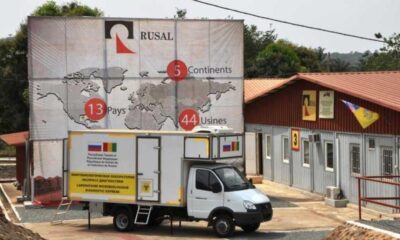Democracy & Governance
Escaping the third world mase -by Tahir Sheriff

Many people have argued against the infrastructural set-backs in Nigeria, especially in the wake of global developments. In an era where space-crafts leave earth for the moon, when full grown chickens can be developed from laboratories in less than 3 weeks, where markets have become mobile and people can see each other over thousands of kilometers on computer applications like Skype That in the face of such global changes, switching of heat bulbs, digging of bore-holes, and free primary education are still among the yard sticks being used to mark developments in Nigeria.
But few have looked at the area which needs the developments the most, this area is the average mind of the ordinary Nigerian. The mind is the infrastructure which should be properly developed and managed if the nation is to move forward. For some who have had a first hand experience with advanced countries, and for others who interact by watching foreign documentaries and sub-opera’s it becomes clear how parents in advanced
countries try to identify and model their children to having an organized mind, and how the syllabuses of academic institutions are designed to reflect the average skill-set of individuals. In retrospect, the mind is developed, and the mind develops the society.
Many years ago, the Nigerian state did not have electric power, or mobile communication. The Nigerian society did not have Google or Wikipedia to tell them everything they needed to know, neither Facebook to meet with long ago friends, or the multiple television stations broadcasting events as they occurred. Yet the society was considerably organized, the security, educational and social amenities were sufficient to meet the everyday needs. This was development. The average Nigerian mind during this era was in tune with its society, it was organized.
Some believe when all the infrastructures are present, a society can be said to be developed. But there has been few consideration to other aspects of what really development is, people or property? Development in modern times now goes beyond having power, water supply, public transport, telecommunication, roads and schools. Global importance has been shifted to developing individuals. This becomes clearer when you consider the arguments that having a hospital is not as important as having good doctors to work in those hospitals. Doctors can pull resources to build hospitals, hospitals however can’t build doctors. Students willing to learn make up an academic institution, institutions don’t make students. Facilities don’t make scientist, scientists design the facilities. Governments do not create citizens, citizens create types, systems and organs of governments. The best resources of a nation is its human capital, since humans can also be said to be part of a nations natural resources.
A vivid example to demonstrate that development goes far beyond having wide roads and skyscrapers or more cars in the roads was witnessed in the Nigeria in the Federal Capital Territory Abuja. In 1991, the Gbagyi ethnic group who mostly dominated parts of Asokoro, Maitama and Garki, were relocated under the Major General Ibrahim Babangida military government to fully built and well organized settlements in Dutse, Kubwa, Zuba, and other close communities. The provision included adequate power supply, markets and good road network. However, ten years later, over 80% of those relocated had sold their houses, and built mud huts for themselves further away from the settlements. Though their environments were developed, their minds were not. This like other examples help to show that education transcends beyond having material things, a community develops when the quality of life of its citizens goes on the rise, yet in the wake of said developments in the country, the quality of life of the average Nigerians continually declines.
The first place development is to be achieved is in the minds of people, the people in turn now all function towards the development of the society at large. Great societies have often begotten great minds, this explains how many of the Nigerians who find themselves in highly developed societies often perform un-imaginable feats. The task of those steering the society which include, politicians, business people, philanthropists and also parents is to work towards true developments, where key areas of focus will include the development of value systems, individual codes for morality, and a mind that embraces innovation, creativity, and entrepreneurship By doing this Nigeria may develop its biggest resource, which is its human resource and which like the most developed country in the world is strengthened by diversity.



















